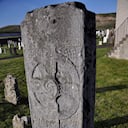Which William Shakespeare play has the quote: "All that glisters is not gold—"?
The quote "All that glisters is not gold" is a famous phrase used in Act II of The Merchant of Venice. And it's really one part of the larger symbolism represented by three caskets. A review of each one will reveal its importance.
Picking the right color casket in the play is very important. The three caskets (gold, silver, and lead) are major symbols. The big tip is the fact that each of them is inscribed with a message on the outside and also contains a note on the inside.
Deliberately, with the decked-out gold casket, it tells us that appearances are often deceiving. Human desire (for wealth, sex, or what have you) can be dangerous. The words 'all that glisters is not gold' stands for anyone who is more interested in a person's wealth and material possessions than what's on the inside.
The inscription on the outside of the silver chest reads, "Who chooses me shall get as much as he deserves." The inside contains a picture of an "idiot," with a nasty little note: it said, 'be gone'; you don't want to be stupid. In other words, whoever chooses the silver casket is a fool who'll get what he deserves (a picture of another fool).
Finally, the lead casket (made of a very humble metal) seems to symbolize inner beauty and modesty (the exact opposite of the shiny gold casket). The inscription on it is: "Who chooses me must give and hazard all he has". Thus, if you take a big risk it requires a big sacrifice.
More Info:
en.wikipedia.org








